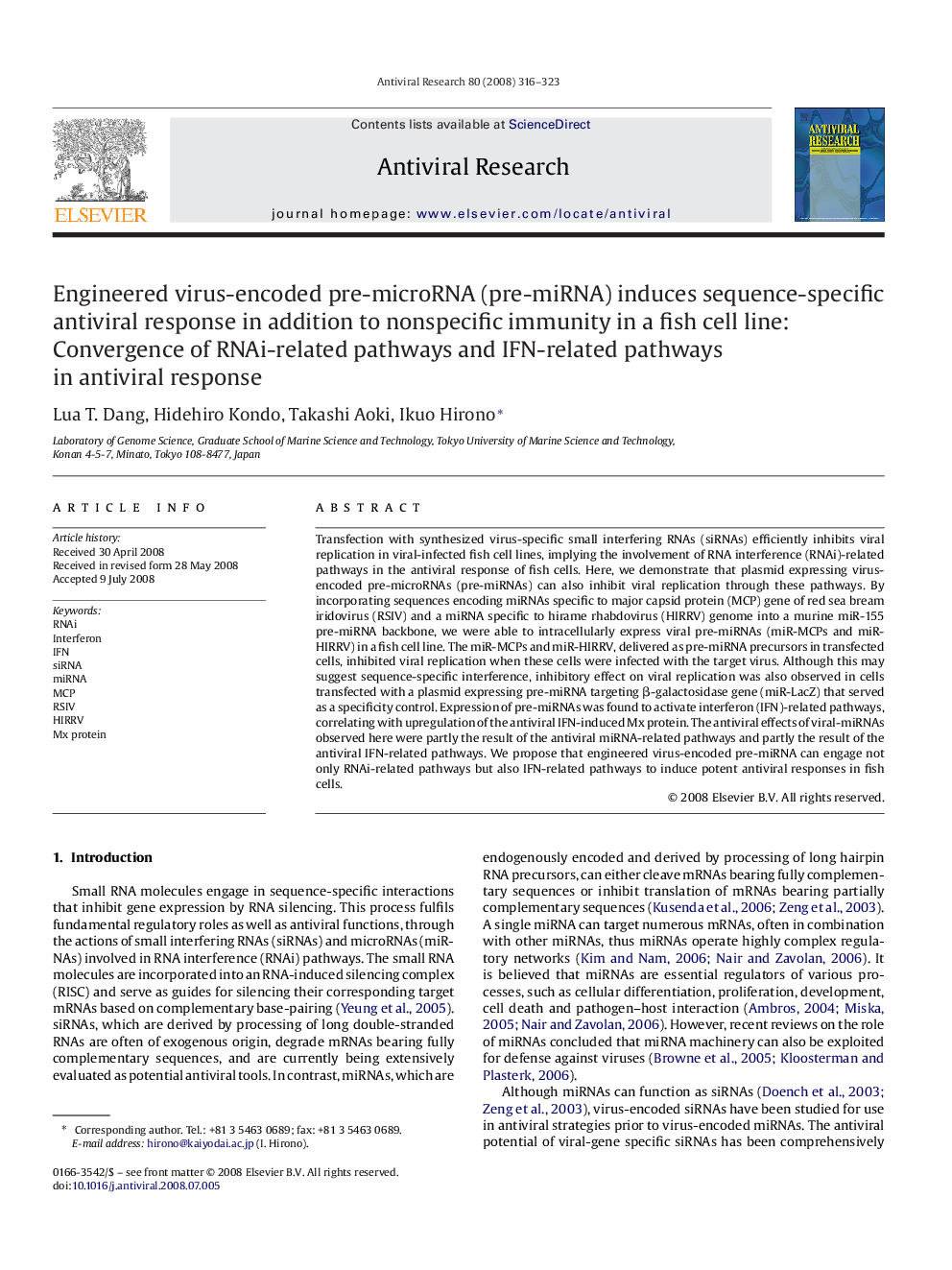| Article ID | Journal | Published Year | Pages | File Type |
|---|---|---|---|---|
| 2511002 | Antiviral Research | 2008 | 8 Pages |
Transfection with synthesized virus-specific small interfering RNAs (siRNAs) efficiently inhibits viral replication in viral-infected fish cell lines, implying the involvement of RNA interference (RNAi)-related pathways in the antiviral response of fish cells. Here, we demonstrate that plasmid expressing virus-encoded pre-microRNAs (pre-miRNAs) can also inhibit viral replication through these pathways. By incorporating sequences encoding miRNAs specific to major capsid protein (MCP) gene of red sea bream iridovirus (RSIV) and a miRNA specific to hirame rhabdovirus (HIRRV) genome into a murine miR-155 pre-miRNA backbone, we were able to intracellularly express viral pre-miRNAs (miR-MCPs and miR-HIRRV) in a fish cell line. The miR-MCPs and miR-HIRRV, delivered as pre-miRNA precursors in transfected cells, inhibited viral replication when these cells were infected with the target virus. Although this may suggest sequence-specific interference, inhibitory effect on viral replication was also observed in cells transfected with a plasmid expressing pre-miRNA targeting β-galactosidase gene (miR-LacZ) that served as a specificity control. Expression of pre-miRNAs was found to activate interferon (IFN)-related pathways, correlating with upregulation of the antiviral IFN-induced Mx protein. The antiviral effects of viral-miRNAs observed here were partly the result of the antiviral miRNA-related pathways and partly the result of the antiviral IFN-related pathways. We propose that engineered virus-encoded pre-miRNA can engage not only RNAi-related pathways but also IFN-related pathways to induce potent antiviral responses in fish cells.
